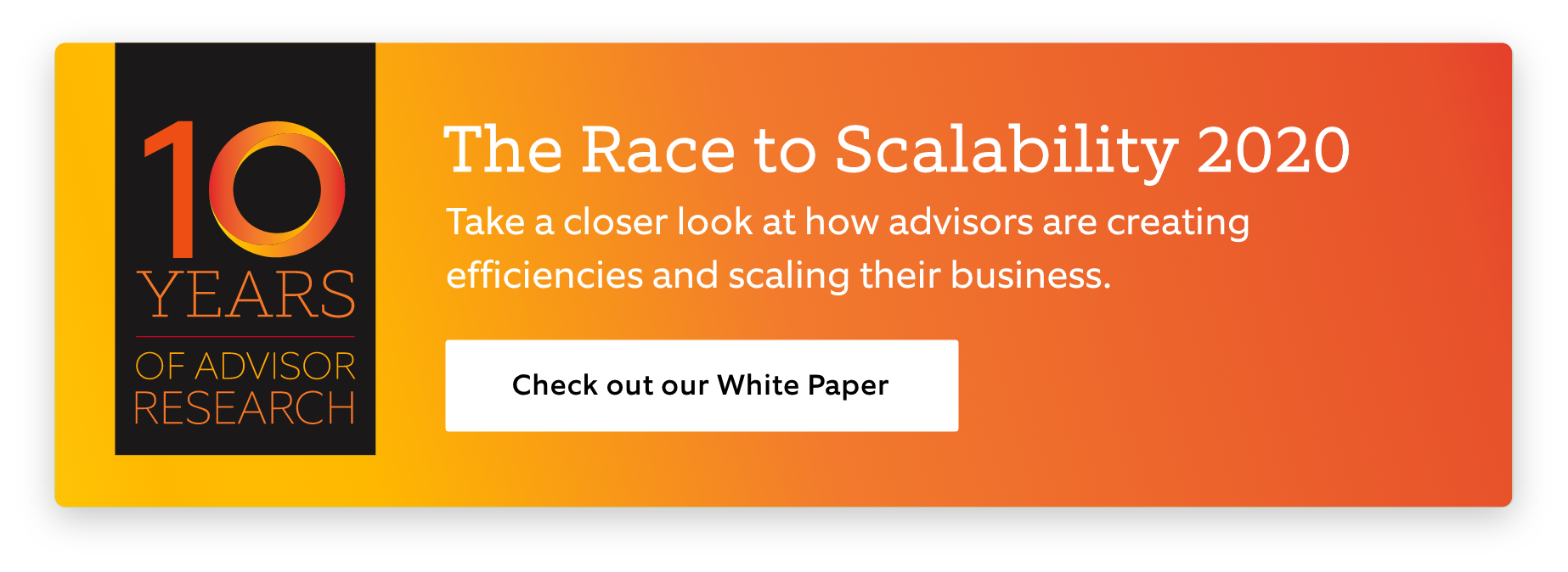
Have you noticed that more players across the financial services industry are increasing access to automated financial planning tools in hopes of opening up sales opportunities? Thanks to banks and large wealth managers looking to expand their turf to small startups trying to reimagine a traditional service, financial technology continues to seize a greater role in peoples’ lives. Advisors are starting to see the case for giving it more prominence in their practices, too.
Our research suggests that over time, this increased effort to harness technology better can play a major role in how and whether advisors use external managers. Firms, aiming particularly to put more technology on the client-facing end, may turn to digital advice platforms for solutions that, ideally, could improve service and increase efficiency, and are easy to use.
Key Takeaways
- Advisors use of digital advice platforms has gained ground
- 92% of advisors using a digital advice platform are satisfied
- Primary drivers for integrating a digital advice platform have shifted
The Race To Scalability 2020, sheds light on how advisors decide whether and how to engage external support to grow their firms. As part of our 10-year commitment to this knowledge area, in 2020, FlexShares talked to more than 500 respondents in the advising profession, including RIAs (33%), independent broker/dealers (35%), hybrid/dually registered RIAs (13%), regional broker/dealers (8%), Insurance broker/dealers (6%). The size of assets under management across the respondent pool ranged from under $50 million (27%) to over $3B (13%).
The future of personalized, trusted advice requires the combination of rich human connection powered by digital interaction.
–Sabrina Bailey, President, Emotomy
In 2020, FlexShares asked advisors if they currently use a platform solution to complement their interactions with clients and 16% of respondents say they do -- nearly triple the 6% who responded affirmatively in 2018. Among advisors using digital advice platforms, 92% reported satisfaction with their platforms.
Some platforms offer advisors the opportunity to build portfolios in-house, use external managers’ portfolios, or to create some type of hybrid approach. Advisory firms using the tools to access third-party models are, on average, investing 31% of AUM, according to survey results. We asked which platform features were most important overall and the most popular choices were: financial planning (37%) performance reporting (37%), portfolio construction (32%), and onboarding and automated account opening (30%).
Flexibility Is a Key Consideration
Throughout the life of the survey a key concern and objection has been the idea that advisors need to give up flexibility in managing client assets if they choose to use outside help. However, the advancement of digital technology has been creating more opportunities to retain flexibility and to provide personalization. According Sabrina Bailey, President of Emotomy – an institutional-caliber digital investment platform for advisors -- a one-size-fits-all approach is not something that advisors want. She says, “The future of personalized, trusted advice requires the combination of rich human connection powered by digital interaction. Whether it is the rise of insights served to advisors to personalize interactions with clients, or the ability to manage personalized investment portfolios at scale, the interaction between advisor and client will continue to be positively impacted by technological advances.”
Shifting to Scale
Making life simpler for the advisor is one thing, but we wanted to know how firms might be using these platforms to deliver on value propositions and tap into scalability.
Our data indicates that as the usage of these platforms grows, the primary factors prompting advisors to offer them appear to be shifting, too, since 2018 (when we first spoke to advisors about their experience with these tools). Back then, the most popular driver was the potential to attract new segments of clients (66%). Remaining competitive in the wealth market (48%) and reducing the costs of managing client portfolios (42%) were also among the top 2018 goals.
In 2020, remaining competitive essentially holds its prominence in our survey as a strategic motivator with 50% of advisors claiming it. However, the popularity of reducing costs slipped to 37%. Seeing to improve the overall investment experience leaped to 49% in 2020 from 18% two years ago. And bringing new technology and automation to the firm (53%) is now widely cited as a primary strategic driver for adoption.
Curiously, no advisor indicated to us in 2020 that targeting new client segments was a top reason to adopt a digital advice platform. Yet when we asked advisors to indicate all the client segments that they were targeting (or planning to target) with their platforms, 61% said they were going to pursue new clients. Existing clients were on the target list for about 41%.
Fad or Fixture: What might the future hold?
Growth in usage along with high satisfaction rates may be a reflection of the way digital platform solutions are evolving to accommodate the needs of the market. Among advisors not using digital advice platforms, 11% said they expect to be using a digital advice platform within two years.
Created in conjunction with Tasha Williams of TTW Consulting

